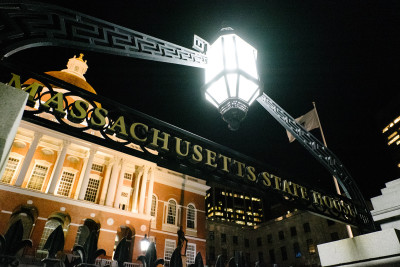
Efforts to increase the minimum wage to $15 per hour for fast food workers and big box retail employers has taken a step forward after action by a committee in the Massachusetts State Legislature Tuesday.
WageAction and the Raise Up Massachusetts have endorsed a bill that would establish a $15 per hour minimum wage over a three-year period.
Specifically aimed at businesses with more than 200 Massachusetts employees, the pending bill calls for a $12-per-hour wage beginning on Jan. 1, 2016, and would increase to $13.50 in 2017 before reaching the $15 goal by Jan. 1, 2018, Jeff Hall, a representative of WageAction coalition, said.
“This is a movement that is helping to drive a critical conversation in our country about the impact that record-setting income inequality is having on families, communities and the economy,” Hall said.
The bill was heard by the Joint Committee on Labor and Workforce Development and will now proceed to the Senate Ways and Means Committee.
All cities must establish a minimum wage that is equal to or greater than the minimum determined by the state, the bill states.
Hall said the inspiration to push for a higher minimum wage came from the Fight for $15 movement that began in 2012 when fast food workers began demanding a union and $15 wages in New York.
“The fight for $15 has become a powerful force that is changing the country, and working people are showing that by sticking together they are being heard and taken seriously,” he said.
Raise Up Massachusetts supported increasing the minimum wage last year before filing for Tuesday’s bill, while WageAction has organized a number of historic protests to raise awareness about the Fight for $15 in the Bay State, Hall said.
“The WageAction coalition has protested employers that pay poverty wages and has joined with the Raise Up coalition for lobbying efforts and mobilizations at the State House, so it’s great to see that the bill is gaining momentum on Beacon Hill,” Hall said.
Hall said he is hopeful that the legislation will lead to more progress for income equality.
“It’s likely to help some of the other $15 bills impacting other industries move forward as well,” Hall said. “This movement has spread well beyond the fast food industry, even folks who are making more than $15, they recognize that the race to the bottom in America needs to end and there needs to be upward momentum on wages.”
Several residents and students said they support the push for a $15 minimum wage for these workers, but they are unsure about the impact it may have.
Banchamlak Abebe, 32, a cashier in Kenmore, said she is grateful for the legislation.
“It’s going to be good, because now the price for everything is going up,” she said. “The minimum wage right now is like $9, and we can’t afford much with that, that’s nothing with how much we spend everyday.”
Bianca Ortiz, a sophomore in the College of General Studies, said that with two jobs, she is barely able to make ends meet, and is hoping this bill will help.
“It’ll help me a lot as far as paying off student loans,” she said. “But I also feel that raising the minimum wage like that might also raise the prices of living standards and they might jack up prices of everything else. But if we can find a way around that then I’d support it wholeheartedly.”
Denzil McKenzie, 20, of Allston, said he would be interested to see the impact this will have on employers.
“I believe it’s going to be definitely beneficial to the middle class, for college students,” he said. “I’m interested to see how it will impact the employers and the impact that paying more will have. Will they have to make cuts? Will there be jobs?”
Carolyn Hoffman contributed to the reporting of this article.



















































































































Billy • Nov 13, 2015 at 5:12 pm
http://www.computerworld.com/article/3004851/robotics/robot-keeps-stores-stocked-with-doritos.html
Grocery store stacking machine
Billy • Nov 13, 2015 at 1:45 pm
http://www.businessinsider.com/momentum-machines-burger-robot-2014-8?op=1
Burger Making Machine